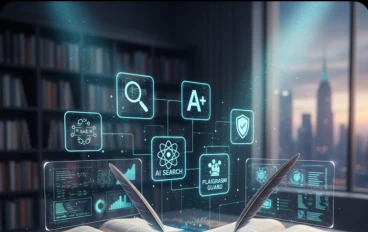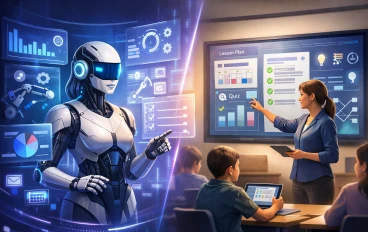
The Impact of Artificial Intelligence in Changing the World: A Comprehensive Analysis.
As technology continues to advance at an unprecedented rate, artificial intelligence (AI) has emerged as a powerful force reshaping the world as we know it. From automating routine tasks to enhancing decision-making processes, AI has revolutionized industries across the board. The impact of AI is felt far and wide, with its influence permeating through sectors such as healthcare, finance, transportation, and beyond. In this article, we will provide a comprehensive analysis of how artificial intelligence is changing the world and what implications this has for society at large.
Overview of Artificial Intelligence advancements
The Transformative Power of AI
Artificial Intelligence (AI) has rapidly emerged as a transformative technology, revolutionizing industries and changing the world in profound ways. Recent advancements in AI have led to the development of intelligent machines capable of performing tasks once thought exclusive to human cognition.
Progress in Machine Learning
One of the key areas where AI has made significant progress is in the field of machine learning. Machine learning algorithms enable computers to learn from data and make predictions or decisions without explicit programming. This has resulted in breakthroughs in applications such as natural language processing, image recognition, and autonomous systems. For instance, AI-powered virtual assistants like Siri, Alexa, and Google Assistant can understand and respond to human speech, while self-driving cars utilize AI to navigate complex environments.
The Role of Deep Learning
Deep learning, a subset of machine learning, has also played a crucial role in advancing AI technologies. Deep learning models, inspired by the neural networks of the human brain, can learn from vast amounts of data to make decisions or identify patterns. These models have been instrumental in developing technologies such as facial recognition systems, medical image analysis tools, and recommendation engines.
Driving Innovation: AI's Influence in Healthcare, Finance, and Transportation
Another area where AI is making significant strides is in the realm of robotics. AI-powered robots are being designed to perform tasks ranging from manufacturing and logistics to healthcare and entertainment. Advanced robotics systems equipped with AI can collaborate with humans in workplaces, assist in surgeries, or even provide companionship to individuals. As AI continues to evolve, we can expect to see robots becoming more integrated into our daily lives and society as a whole.
Impact of AI on Key Industries

Healthcare: Revolutionizing Patient Care
Artificial Intelligence (AI) has significantly impacted various industries, especially healthcare, by enhancing efficiency and improving decision-making processes. In healthcare, AI has transformed how medical professionals diagnose, treat, and manage patient care. AI-powered medical imaging techniques enable healthcare providers to detect diseases earlier and with greater accuracy, leading to improved patient outcomes. Additionally, AI algorithms analyze vast amounts of medical data to identify patterns and trends, potentially leading to breakthroughs in treatment methods and drug discovery.
Finance: Enhancing Decision-Making and Security
In the finance industry, AI has transformed how companies manage risks, make investment decisions, and detect fraudulent activities. AI algorithms analyze market trends, predict stock price movements, and provide valuable insights to financial institutions, optimizing their operations. Furthermore, AI chatbots streamline customer service processes, offering real-time assistance to clients and enhancing their overall experience with financial services.
Transportation: Redefining Mobility and Efficiency
AI technologies have also revolutionized transportation, changing how people travel and how goods are transported. Autonomous vehicles powered by AI algorithms have the potential to reduce traffic accidents, lower transportation costs, and increase overall efficiency. AI-powered navigation systems optimize routes, predict traffic congestion, and provide real-time updates to drivers, enabling them to make more informed decisions and reach their destinations faster.
The Future of AI and Its Global Impact
The impact of AI on industries such as healthcare, finance, and transportation cannot be overstated. It has led to significant advancements in efficiency, productivity, and innovation, driving economic growth and transforming how businesses operate. As AI continues to evolve and become more sophisticated, its potential to revolutionize industries and improve the world is immense.
Ethical considerations of AI implementation

The Ethical Landscape of AI
The rapid advancement of artificial intelligence (AI) technology has sparked numerous ethical considerations that must be addressed to ensure responsible implementation. As AI increasingly influences various aspects of our lives—such as healthcare, finance, transportation, and decision-making processes—it is crucial to examine the potential ethical implications of this technological evolution.
Bias in AI Systems
One of the primary ethical concerns surrounding AI implementation is the issue of bias. AI systems are only as unbiased as the data used to train them. If this data is biased or flawed, the AI will perpetuate and potentially amplify these biases, leading to discrimination and unfair treatment of certain individuals or groups. This can have serious implications for societal harmony and justice. Therefore, developers and implementers of AI systems must be vigilant in ensuring their systems are ethically sound and free from bias.
Impact on the Workforce
Another significant ethical consideration is the potential impact of AI on the workforce. While AI can streamline processes, increase efficiency, and alleviate human workers from mundane tasks, it also has the potential to replace jobs and displace workers. This raises concerns about rising unemployment rates and the ability of individuals to adapt to a rapidly changing job market. Developers and policymakers must carefully consider the ethical implications of AI-driven automation and take proactive steps to mitigate negative impacts on the workforce.
Privacy and Data Security
Privacy and data security are critical ethical considerations in AI implementation. AI systems often rely on vast amounts of personal data to function effectively, raising concerns about privacy and the security of this information. If not handled properly, AI systems could pose significant threats to individual privacy and autonomy. Developers and organizations need to prioritize data protection and implement robust security measures to safeguard sensitive information from unauthorized access or misuse.
4. Transparency and Accountability
The issue of transparency and accountability is paramount in AI implementation. Given the complexity of AI systems and their ability to make autonomous decisions, there is a pressing need for transparency in how these systems operate and the rationale behind their decisions. Additionally, mechanisms must be in place to hold developers, organizations, and AI systems accountable for their actions and outcomes. This is essential for ensuring that AI is deployed responsibly and ethically, allowing potential issues to be identified and addressed promptly.
Prioritizing Ethical Considerations
In conclusion, the ethical considerations surrounding AI implementation are multifaceted and require careful attention from all stakeholders involved. By addressing issues such as bias, workforce displacement, privacy and data security, and transparency and accountability, we can develop and implement AI systems in a manner that upholds ethical standards and respects the rights and dignity of individuals. As AI continues to shape the world around us, prioritizing ethical considerations is imperative to ensure that AI technology benefits society as a whole.
Challenges and opportunities for the future of AI technology
Case Studies of Successful AI Applications
Artificial Intelligence (AI) has the potential to revolutionize various aspects of our lives, providing innovative solutions to complex problems and significantly improving quality of life. Here are some successful AI applications demonstrating this transformative power:
1. AI in Healthcare
In the healthcare industry, AI has advanced medical research, diagnosis, and treatment. For example, AI algorithms analyze medical images, such as X-rays and MRIs, with high accuracy, aiding in early disease detection. By leveraging large datasets, AI identifies patterns that may not be visible to human eyes, leading to more precise diagnoses.
Additionally, AI is applied in personalized medicine, tailoring treatment plans to individual patients based on their unique genetic makeup, lifestyle, and environmental factors. By integrating patient data with scientific research, AI can recommend effective therapies that minimize side effects, ultimately improving patient outcomes.
2. AI in Education
AI has also made significant strides in education through intelligent tutoring systems that adapt to individual learning styles. By analyzing student performance data, AI can provide personalized recommendations for learning materials and activities, helping students achieve better academic outcomes. Furthermore, AI-powered chatbots offer instant support, enhancing the overall learning experience.
3. AI in Urban Infrastructure
AI enhances urban infrastructure and transportation systems, leading to more efficient and sustainable cities. AI algorithms optimize traffic flow, reduce congestion, and minimize carbon emissions by dynamically adjusting traffic signals. Additionally, AI sensors monitor infrastructure issues, such as detecting potholes or leaks in water pipelines before they escalate.
4. AI in Environmental Conservation
AI significantly impacts environmental conservation, with applications ranging from monitoring endangered species to predicting natural disasters. By analyzing satellite imagery and sensor data, AI tracks wildlife populations, detects illegal deforestation, and forecasts extreme weather events more accurately. These initiatives help preserve biodiversity and contribute to the sustainability of ecosystems.
In conclusion, the impact of artificial intelligence in changing the world is undeniable. From revolutionizing industries and streamlining processes to enhancing convenience and personalization, AI has the potential to significantly shape the future of our society. With continuous advancements in technology and the increasing adoption of AI solutions, it is imperative for stakeholders to carefully consider the ethical, legal, and social implications of its widespread use. By harnessing the power of AI responsibly and ethically, we can maximize its positive impact and pave the way for a more efficient and innovative world.
the reviewer






























